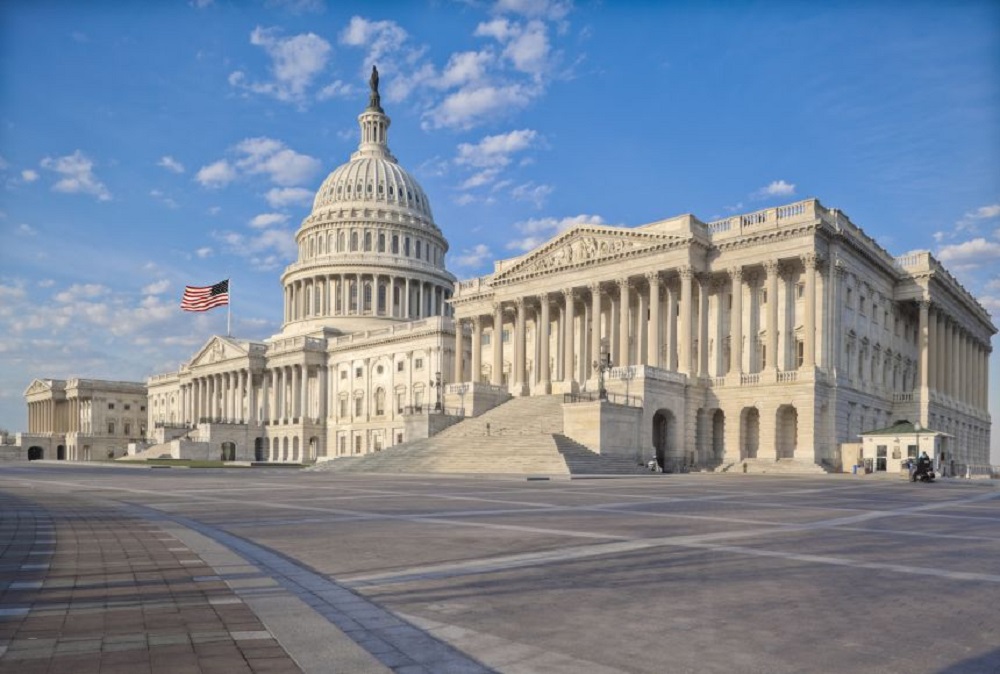The U.S. Senate voted on Sunday evening to pass a government funding bill, putting Congress on track to end the longest government shutdown in U.S. history within days.
The bill passed with a 60-40 vote, the minimum needed to overcome a Senate filibuster. According to CNN, a group of eight moderate Democratic senators helped break a five-week deadlock, advancing a funding agreement to reopen the government in exchange for a future vote on extending Affordable Care Act support.
Senators supporting the agreement included Catherine Cortez Masto, Dick Durbin, Jon Fetterman, Tim Kaine, Maggie Hassan, Jacky Rosen, Jeanne Shaheen, and independent Angus King.
The deal includes a temporary funding extension until January 30 and a package of three full-year appropriations bills, fully funding several major federal agencies. Republicans pledged to bring the healthcare funding issue to a vote in December and assured the reinstatement of federal employees furloughed during the shutdown.
Major Victory for Federal Workers
The bill prevents federal agencies from laying off employees until January 30, a win for federal unions and their allies, and blocks former President Trump’s efforts to reduce federal workforce numbers. At the start of Trump’s second term, around 2.2 million federal civilians were employed, with at least 300,000 expected to leave by year-end due to workforce reduction plans.
It will also provide back pay for all federal employees, including military personnel, border agents, and air traffic controllers.
Approaching a Resolution
The legislation aims to end the 40-day shutdown, which has affected federal workers, delayed food assistance, and disrupted air travel. Trump told reporters at the White House, “It seems we are very close to ending the shutdown.” However, additional procedural steps are required before the government fully reopens, as any senator can delay consideration of the bill.
According to Reuters, after Senate approval of the revised measure, the House of Representatives must pass it and send it to President Trump for signature, a process that could take several days. The Senate resumed sessions Monday morning at 11 a.m. to continue reviewing legislation to reopen the government following Sunday night’s breakthrough.
Meanwhile, Democratic House leadership informed members to expect a vote later this week, with 36-hour notice before voting, while members face travel delays due to the shutdown. Republican leaders in the Senate are working to reach a bipartisan agreement to bypass procedural hurdles and move forward with passage. Otherwise, final approval could extend the shutdown into the next week.
Increasing Pressure
Senate Majority Leader John Thune commented on Sunday: “The vote was good tonight. We hope to have a chance tomorrow to prepare for the next votes. Of course, this will require cooperation and agreement.”
Sunday marked the 40th day of the shutdown, affecting federal workers, food assistance, travel, and parks, while understaffed air traffic control worsened travel disruptions during the busy Thanksgiving holiday season. Senator Tom Tillis, a Republican from North Carolina, said the growing impacts of the shutdown pushed the Senate toward reaching an agreement.
Extended shutdowns could negatively impact Q4 economic growth, especially if air travel does not return to normal by Thanksgiving on November 27, according to White House economic advisor Kevin Hassett.
Healthcare Crisis at the Core
Healthcare subsidies, which doubled ACA enrollment to 24 million since 2021, remain central to the shutdown. Republicans indicated willingness to address this only after government funding is restored.
Trump criticized the support via Truth Social, calling it “an unexpected gain for health insurers and a disaster for the American people,” and suggested sending funds directly to individuals to purchase coverage. He added: “I am ready to work with both parties to resolve this issue once the government is back in operation.”
Health experts estimate that Americans seeking ACA plans in 2026 could face more than double their monthly premiums on average once pandemic-era subsidies expire. However, the ACA enrollment period continues until January 15, providing a window for legislative efforts to extend credits for the upcoming year.

